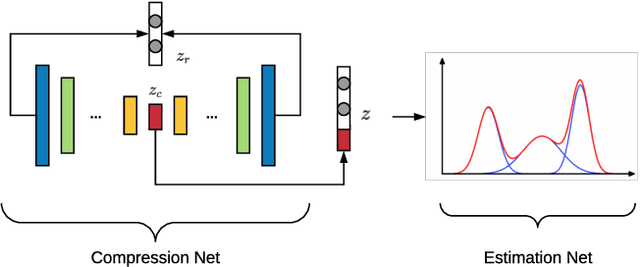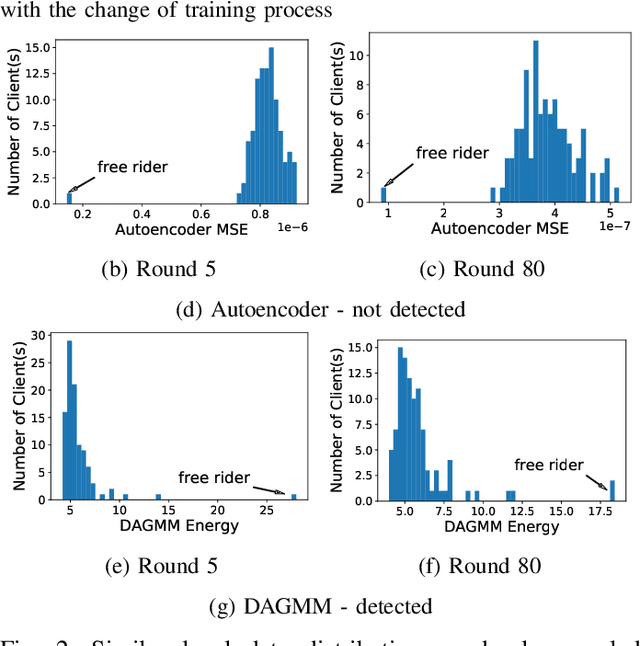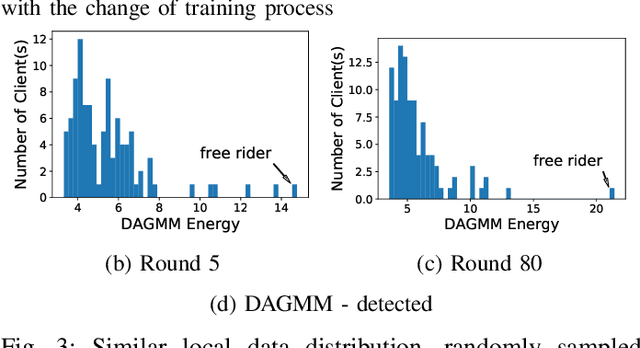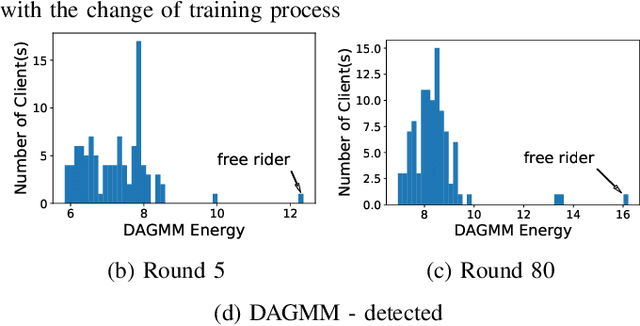Free-riders in Federated Learning: Attacks and Defenses
Paper and Code
Nov 28, 2019



Federated learning is a recently proposed paradigm that enables multiple clients to collaboratively train a joint model. It allows clients to train models locally, and leverages the parameter server to generate a global model by aggregating the locally submitted gradient updates at each round. Although the incentive model for federated learning has not been fully developed, it is supposed that participants are able to get rewards or the privilege to use the final global model, as a compensation for taking efforts to train the model. Therefore, a client who does not have any local data has the incentive to construct local gradient updates in order to deceive for rewards. In this paper, we are the first to propose the notion of free rider attacks, to explore possible ways that an attacker may construct gradient updates, without any local training data. Furthermore, we explore possible defenses that could detect the proposed attacks, and propose a new high dimensional detection method called STD-DAGMM, which particularly works well for anomaly detection of model parameters. We extend the attacks and defenses to consider more free riders as well as differential privacy, which sheds light on and calls for future research in this field.
 Add to Chrome
Add to Chrome Add to Firefox
Add to Firefox Add to Edge
Add to Edge